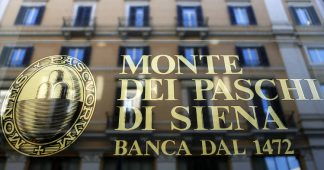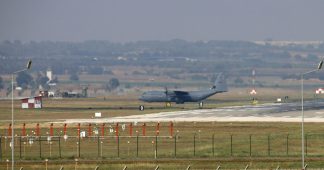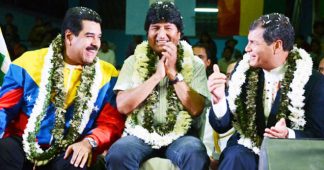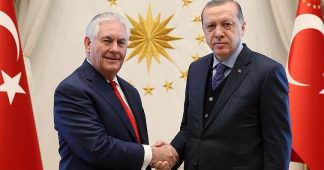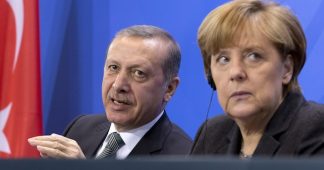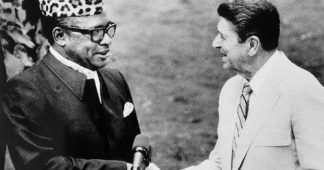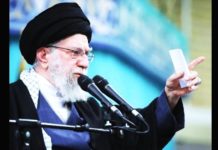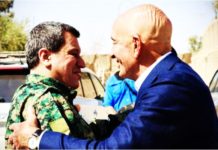by Eric Toussaint
3 June 2019
In 2019, the World Bank (WB) and the IMF will be 75 years old. These two international financial institutions (IFI), founded in 1944, are dominated by the USA and a few allied major powers who work to generalize policies that run counter the interests of the world’s populations.
The WB and the IMF have systematically made loans to States as a means of influencing their policies. Foreign indebtedness has been and continues to be used as an instrument for subordinating the borrowers. Since their creation, the IMF and the WB have violated international pacts on human rights and have no qualms about supporting dictatorships.
A new form of decolonization is urgently required to get out of the predicament in which the IFI and their main shareholders have entrapped the world in general. New international institutions must be established. This new series of articles by Éric Toussaint retraces the development of the World Bank and the IMF since they were founded in 1944. The articles are taken from the book The World Bank: a never-ending coup d’état. The hidden agenda of the Washington Consensus, Mumbai: Vikas Adhyayan Kendra, 2007, or The World Bank : A critical Primer Pluto, 2007.
«The World Bank tried very hard to make the the Turkish military appear salutary, and to avoid criticising their interventions.The official comments from the Bank, that the 1980 coup d’état would not jeopardise the Bank’s intention to lend, were very courteous. [1]
The World Bank’s strategy in Turkey clearly recalls its policy towards Ferdinand Marcos’ dictatorship in the Philippines from 1972, Augusto Pinochet’s in Chile from 1973, and the economic model they promoted. Geopolitical reasons are once again a determining factor: a hinge between Europe and Asia, Turkey is an essential pawn on the Middle East chessboard. Consequently it is necessary to subordinate this country to Washington’s interests by giving full support to an authoritarian regime. The World Bank works in this direction when, in perfect agreement with the military leaders, it develops neoliberal economic policies that open the door wide to investments by transnational corporations and suppresses both trade unions and far-left parties. Such policies consolidate the rôle of Turkey as a spearhead for the United States in a historic new context.
In the 1950s the World Bank got off to a bad start in Turkey. Its signing officer, Pieter Lieftinck, from the Netherlands, was expelled by the Ankara authorities on the grounds of excessive interventionism.
Under Robert McNamara, Turkey’s geostrategic importance led the World Bank to increase its efforts to improve matters. A few months after becoming president, in July 1968, Robert McNamara visited Turkey. He knew the country well since it had been a military ally of the United States. As Defense Secretary until 1967 he was in close contact with Ankara. Anxious not to repeat what had happened with Pieter Lieftinck, the World Bank took great care not to appear too openly intrusive in the 1970s [2]. By the end of the decade it had gradually increased its pressure on the Turkish government, particularly in 1978 when the left-wing nationalist, Bülent Ecevit, became Prime Minister. In particular, the Bank tried to force an increase in the price of electricity.
The September 1980 military coup, which resulted in a dictatorship that lasted until May 1983, was very convenient for the World Bank, since the military leaders agreed to maintain the neoliberal plan it had drawn up with Süleyman Demirel [3] and Turgut Ozal.
Turgut Ozal [4] had been appointed state undersecretary for economic coordination by the then Prime Minister Süleyman Demirel. These two were to launch the neoliberal economic programme in January 1980. But its implementation was made difficult by TU actions, the sense of insecurity resulting from confrontations between right-wing and left-wing students, manœuvers in the Muslim Party which drove a hard bargain for its parliamentary support of Süleyman Demirel’s minority government… and the army’s thirst for power, intent on destabilising the government with the help of the US. However, the military regime, which dissolved parliament and put Süleyman Demirel in jail in September 1980, appointed Turgut Özal as plenipotentiary minister for economic affairs. He was then able to implement neoliberal policies for two years, until the financial crash that resulted in his eviction.
The World Bank enthusiastically supported the policies developed by the military leaders and Turgut Özal since they led the way to “increasing export incentives, improving external debt management, eliminating the budget deficit (…), reducing the level of public investment.” [5]
The historians of the World Bank wrote: “the Turkish program became a prototype for the institution’s structural adjustment loan series.” [6]
Several factors made such developments easier:
1. the close connections between Turkish political leaders and Turkish senior officers in the World Bank. In addition to already cited names we can mention Attila Karaosmanoghu [7] and Munir Benjenk [8] men of the Bank par excellence. [9]
2. In 1977 a highly indebted Turkey experienced a crisis, and contrary to other indebted countries it was granted significant aid by Western powers (United States, Germany), the World Bank and the IMF so that it did not go under. [10]
Turkey’s neoliberal turnabout was not easy since the Constitution that had been drafted in the early 1960s stipulated that the country develop an industrialization policy aiming at import substitution, and implement both protectionism and public investment to this end.
The military coup in September 1980 therefore had the World Bank’s wholehearted sympathy. It is likely that Robert McNamara knew about preparations for the coup for he entertained close relations with the Carter administration.
The example of Turkey is another illustration of how thoroughly the World Bank’s policies are determined by geostrategic interests, particularly those of the United States.
Historians of the World Bank even acknowledge this openly: “Personally as a global statesman, McNamara was not blind to Turkey’s geopolitical salience” [11]. Faced with the danger of the 1979 Iranian revolution that was hostile to the United States’ policy, Turkey’s stability had to be ensured by supporting an authoritarian regime. [12] The military coup in Turkey was prepared with the help of the United States.
In neighbouring Iraq, Saddam Hussein’s 1979 coup against a pro-Soviet regime was part of the same convergence of strategic interests. Later Saddam would serve the interests of the United States and of Western Europe when he launched the war against Iran in 1980.
This is not something the historians of the World Bank ever mention. However their comments on Turkey are clear enough: “The Bank seemed to take special pains to attribute benign motives to the Turkish military and avoid exhibiting displeasure at its interventions. The institution’s formal comments to the effect that the military takeover in 1980 would not displace the Bank’s lending intentions were extremely polite.” [13]
En 1988, la Banque mondiale écrit : “Parmi les clients de la Banque, la Turquie représente l’une des plus spectaculaires réussites »
When the military leaders handed power back to civilians, Turgut Ozal and his Motherland party led the government.
In subsequent years Turkey received five structural adjustment loans (until 1985). In 1988 the World Bank wrote: “Among the Bank’s clients, Turkey represents one of the most spectacular success stories.” [14]
Such a self-congratulatory observation deserves comment. If we look at one of the Bank’s major objectives, namely reducing inflation, there is little success to be celebrated: the annual inflation rate before structural adjustment was between 40 and 50 % at the end of the 1970s; under the military dictatorship that implemented adjustment, inflation reached 46% in 1980-1983, 44% in 1984-1988, 60% in 1989. In the following decades it reached an average of 70% with peaks as high as 140%.
In short, the objective of reducing inflation was definitely not achieved. The same applies to the public internal debt which exploded and to the external debt that increased even further.
But if we consider the Bank’s hidden agenda, it can indeed be said that it achieved a remarkable victory in the 1980s :
-* Turkey remained one of the Western powers’ staunch allies;
-* it completely relinquished the industrialization model by import substitution with a high level of protectionism and a high level of public investment;
-* it developed a model focusing on exports by increasing its competitiveness, forcing down real wages and devaluing its currency in significant proportions;
-* the TU movement and both the reformist and the revolutionary Left were repressed thanks to the dictatorship.
From the end of 1979 to 1994 the relative value of the US dollar to the Turkish lira multiplied by 900; this process started with a 30% devaluation in 1980. In the 1970s real wages had significantly increased as a result of the trade unions’ influence and the political position of the far left among young people and workers. The 1980 military coup made it possible to ban trade unions and strikes, reduce wages and increase profits.
Turkey thus became a veritable haven for corporate investments. Turgut Ozal was rewarded and elected President from 1989 to 1993.
The World Bank steadily supported the military regime and the subsequent regime through loans of close to one billion USD per year.
In 1991, in exchange for its services to the United States and its allies in the first Gulf War, Turkey benefited from reparations paid by a defeated Iraq.
We can thus claim that the World Bank’s strategy in Turkey clearly recalls its policy towards Ferdinand Marcos’ dictatorship in the Philippines from 1972, Augusto Pinochet’s in Chile from 1973, and the economic model they promoted.
In 1999-2001 Turkey went through a financial crisis as severe as that of Argentina. Geostrategic interests again prevailed in the decisions taken: the IMF abandoned Argentina in December 2001 when it refused a new loan to President de la Rua while it simultaneously pursued its policy of loans to Turkey in order to prevent social disruption that would destabilise an essential pawn on the Middle East chessboard.
Now, as everywhere else, the aid provided by the IMF and the World Bank only increases the debt of recipient countries and Turkish citizens have a right to refuse further reimbursement to the Bretton Woods institutions. The debt that was contracted to the IMF and the World Bank is odious by any standards.
Part 1
Part 2
Part 3
Part 4
Part 5
Part 6
Part 7
Part 8
Part 9
Part 10
Part 11
Part 12
Part 13
Footnotes
[1] Kapur, Devesh, Lewis, John P., Webb, Richard. 1997. The World Bank, Its First Half Century, Volume 1: History, Brookings Institution Press, Washington, D.C., 1275 p. This book was financed by the World Bank for its 50th anniversary.
[2] “The Bank in the 1970s was at pains in Turkey not to overreach” in D. Kapur, J. Lewis, R. Webb, 1997, vol. 1., p. 547
[3] Süleyman Demirel (1924) served several times as Prime Minister (1965-1971; 1975-1978 ; 1979-1980). He was head of government again in 1991 then president of the Republic from 1993 to 2000.
[4] Turgut Ozal (1927-1993) was Prime Minister from 1983 to 1989, then President of the Republic from 1989 to his death in 1993. He worked at the Bank in Washington from 1971 to 1973.
[5] D. Kapur, J. Lewis, R. Webb, 1997, vol. 1., note 60 p. 548.
[6] D. Kapur, J. Lewis, R. Webb, 1997, vol. 1., p. 548.
[7] In the mid-1980s Attila Karaosmanoglu became vice-president of the World Bank for East Asia and the Pacific. He had been responsible for hiring Turgut Ozal as head of planning in 1960 and was deputy Prime Minister immediately after the 1971 coup.
[8] Munir Benjenk was vice-president of the World Bank for Europe, the Middle East and North Africa all through the 1970s. Munir Benjenk was Robert McNamara’s direct advisor for Turkey.
[9] Later it would turn into quite a tradition with, for instance, Kemal Dervis, former vice president of the World Bank, becoming Turkey’s finance minister from March 2001 to August 2002. In 2005 Kemal Dervis became director of the UNDP.
[10] This continued in the 1990s and early 2000s.
[11] D. Kapur, J. Lewis, R. Webb, 1997, vol. 1., note 62, p. 549.
[12] At the time of the coup, tensions between the United States and Iran were very high since about a hundred American hostages were being detained in Teheran. The issue was at the core of the election campaign opposing Ronald Reagan and Jimmy Carter (running for a second term of office).
[13] D. Kapur, J. Lewis, R. Webb, 1997, vol. 1., p. 547.
[14] D. Kapur, J. Lewis, R. Webb, 1997, vol. 1., p. 550.
